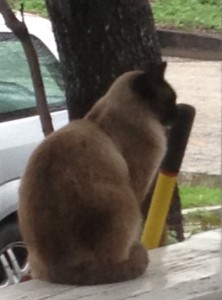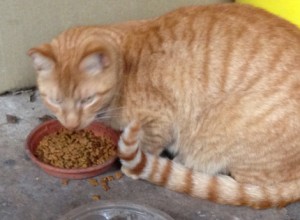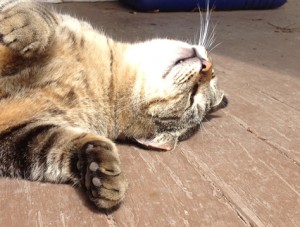 A friend introduced me to the work of life coach Martha Beck recently, and after reading about her visits to South Africa to encounter amazing animals in their home territory on the “look-inside-this-book” pages of Finding Your Way in a Wild New World, Reclaiming Your True Nature on Amazon, I decided to find out more about her coaching methods and bought an audiobook of The Four-Day Win, End Your Diet War and Achieve Thinner Peace, which I am now reading. Although losing weight isn’t as dramatic as going to Africa to observe the interactions of large, wild animals, Beck is dealing with one of the most daunting parts of making changes in our lives in this little book: taking the first steps.
A friend introduced me to the work of life coach Martha Beck recently, and after reading about her visits to South Africa to encounter amazing animals in their home territory on the “look-inside-this-book” pages of Finding Your Way in a Wild New World, Reclaiming Your True Nature on Amazon, I decided to find out more about her coaching methods and bought an audiobook of The Four-Day Win, End Your Diet War and Achieve Thinner Peace, which I am now reading. Although losing weight isn’t as dramatic as going to Africa to observe the interactions of large, wild animals, Beck is dealing with one of the most daunting parts of making changes in our lives in this little book: taking the first steps.
Her approach to weight-loss asks readers to develop a harmonious relationship with themselves rather than cruelly starving their bodies into submission. She supports her analysis of what works in weight loss with reference to psychological research and her own experience as a person who dieted mercilessly, and unsuccessfully, for years who has become a person who is fit and never even thinks the word “diet.”
She encourages dividing huge goals, like changing from overeating and self-reproach to eating healthy and self-acceptance, into manageable chunks. Beck calls her technology for this the 4-Day Win. By taking on a part of the change that we can handle in a time-frame we’re not afraid to commit to, we get a “win” early in the movement toward the larger goal and build momentum. We also commit to reward ourselves along the way. I’ve already made a ridiculously easy goal to repeat for the next four days. Although I struggled with the idea of reward, I did finally establish both a daily reward and a larger one to recognize the finished “win.” I’ve already completed my commitment for Days 1 and 2, for both achievement and reward.
The 4-Day Win is applicable in lots of situations, and I will use it. However, I had a much more profound insight that could lead to deeper change in me when I read Beck’s metaphor that likens traditional dieting to “breaking” a horse. Among other things, she noted that horses are great teachers for us because they are so sensitive to human emotions and the behaviors that indicate our state of mind. She also described a different way to train a horse that works through communicating, in a language of gesture and behavior that horses understand, the willingness to enter into community with the horse “join up,” as she puts it. When we stop chasing our bodies down with whips (as in horse “breaking”) and treat ourselves with care and love (“joining up” with our bodies), we trust ourselves not to subject our bodies to punishment and starvation and move without effort toward ideal weight and activity levels.
 Honestly, the story Beck told about watching Koelle Simpson develop a trusting relationship with a mean, wild horse in less than one day made me yearn to learn from horses myself. Then, I realized that I have similar teachers living right alongside me on this little city lot. My feral cat friends are equally sensitive to my state of mind and emotion when I enter their wild world. When I approach them with respect and speak as much of their language as I currently understand, they respond with trust and approach me to get to know me better. When I am harried and rushing, they avoid me until I slow down with a deep breath and bring my concentration to our moment together. They are teaching me to how to gain their trust. When I’m at my best, they will follow me willingly. They come to my porch to gain reassurance from me when they are afraid in a storm.
Honestly, the story Beck told about watching Koelle Simpson develop a trusting relationship with a mean, wild horse in less than one day made me yearn to learn from horses myself. Then, I realized that I have similar teachers living right alongside me on this little city lot. My feral cat friends are equally sensitive to my state of mind and emotion when I enter their wild world. When I approach them with respect and speak as much of their language as I currently understand, they respond with trust and approach me to get to know me better. When I am harried and rushing, they avoid me until I slow down with a deep breath and bring my concentration to our moment together. They are teaching me to how to gain their trust. When I’m at my best, they will follow me willingly. They come to my porch to gain reassurance from me when they are afraid in a storm.
 Recently, I was petting Sparkle and Huck in the front yard when a new neighbor and his dog stopped to chat. Sparkle stood behind me while I admonished Huck not to chase the dog (yes, he’s a dog chaser). Mystery sat on a front porch step, watching and listening. I told my neighbor the cats were feral.
Recently, I was petting Sparkle and Huck in the front yard when a new neighbor and his dog stopped to chat. Sparkle stood behind me while I admonished Huck not to chase the dog (yes, he’s a dog chaser). Mystery sat on a front porch step, watching and listening. I told my neighbor the cats were feral.
“It doesn’t look like it,” he said.
